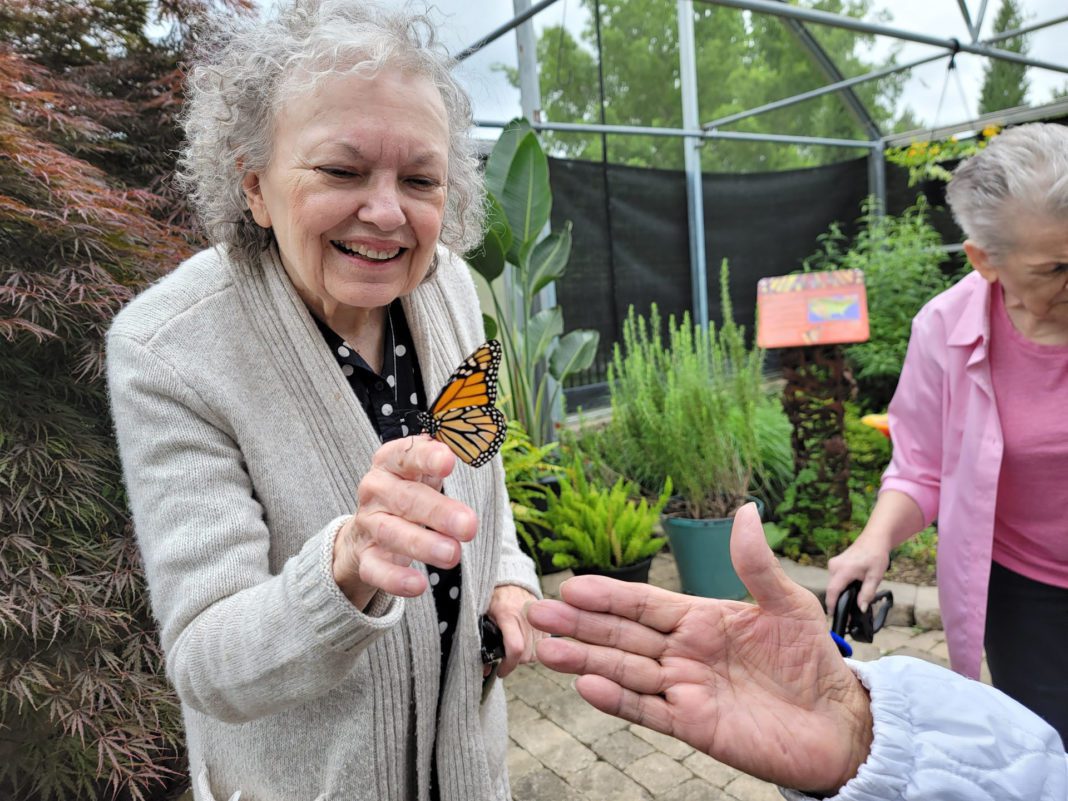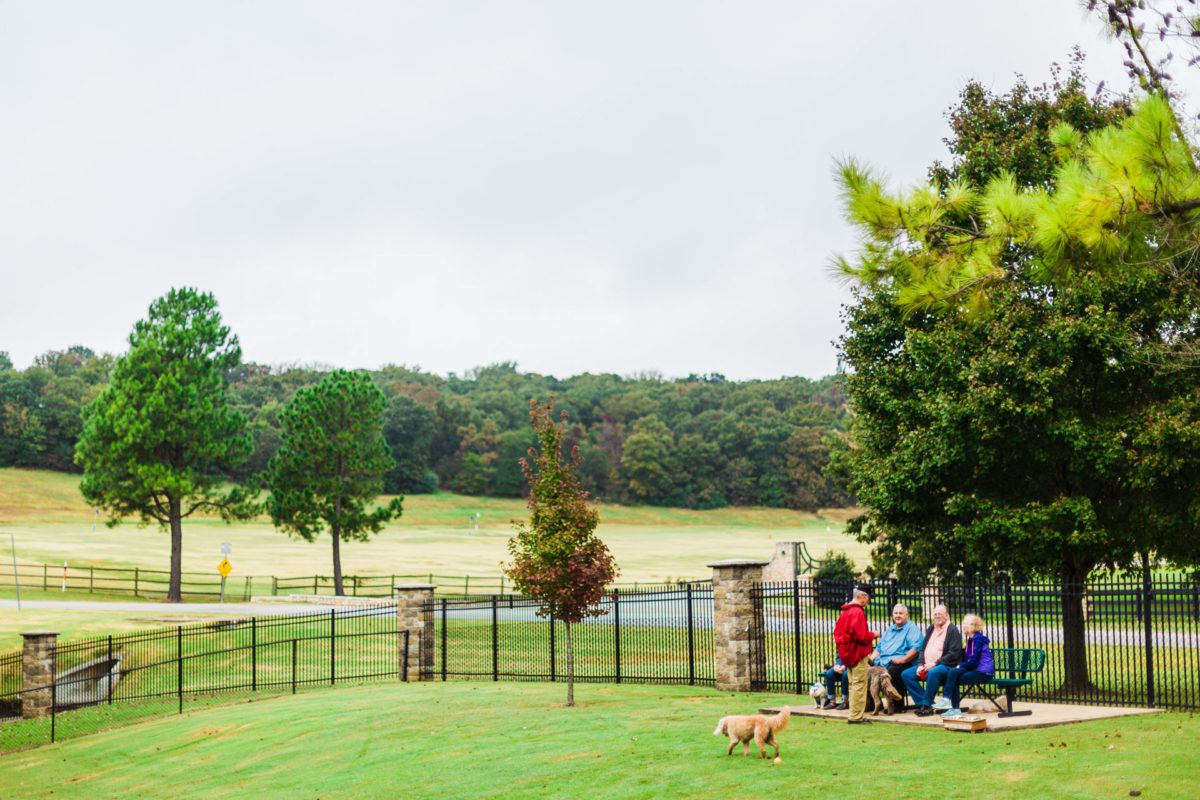Forming a Community
Whether seniors are living alone, with a spouse, their family or at a senior living community, it’s important to stay connected to other people. But that can prove more challenging as people age.
“One great way to find a community – for anyone at any age – is to show up to things that you are personally interested in,” says Taylor Hernandez, director of learning and development with Senior Star. “There, you’ll likely find others with whom you have something in common.”
Many cities and small towns alike have senior centers that offer a variety of options for getting involved.
Steve Goforth, president of Oxford HealthCare, recommends these centers as a way to engage socially, share a meal and take part in age-appropriate activities. He explains that often, senior centers are a way to connect with people in similar situations who are looking for the same things.
Dawn Parli, director of community outreach at Interim HealthCare, also recommends adult day centers for those who need a bit more care. Senior centers and adult day centers offer older adults an outlet to engage, she says. Something as simple as a good round of bingo can really help, as a fun way to keep a person’s cognitive abilities where they need to be, with competition and a focus on numbers and letters.
Retaining Independence
Maintaining social connections is a vital part of retaining independence as we age. But what are some other ways that seniors can safeguard their autonomy, whether in their own home or a senior living community?
“[For] so many seniors, their mobility is affected by a fall. And, to the best of their ability, to maintain that strength and balance is critical,” says Goforth. Staying physically active, while following the advice of a physician, is an important way to keep strength and balance as you age. Goforth recommends a practice of tai chi, often available at local senior centers.
Senior living communities across Oklahoma know the importance of allowing residents to keep as much independence as possible. Jana Decker, director of wellness with Covenant Living at Inverness, says that the community gives each resident “a voice, choice and opportunities to engage in the things that matter most to them, encouraging them to be a part of the process and the decision making.”
Shadoworee Betts, senior vice president of clinical services at Senior Star, seconds this: “The resident is the decision maker and we don’t take that freedom away.”
And Hernandez advises to “stay connected with friends and family, make new social connections as often as possible and stay moving – move your body as much as possible,” in an effort to remain independent.
Engaging Elders
Personally connecting with our aging loved ones is an important way to help them stay motivated, but sometimes it can be difficult to get that conversation going.
Parli recommends the use of a “memory box” to help in these situations. Elders and their younger friends and family can include questions and information about a range of topics, such as why a name was chosen, where they were born and details around early childhood. These offer topics of conversation and they trigger cognitive memory for the elderly person to expand upon questions.
Betts also recommends patience.
“Give them time to think and answer the question,” she says. “Silence doesn’t mean they didn’t hear you, but it may mean they are thinking about how to respond.”
Parli continues: “We have so much history that is just sitting there untapped. The people that are aging now have seen so much. Going back and realizing what got them where they’re at is an amazing gift.”
Advice for Caregivers
Our elderly family members have much to offer when it comes to wisdom, so caring for an aging parent or grandparent can be a blessing. But there are also some vital things to know about filling this important role.
Goforth emphasizes the importance of preparing for what’s to come, which can be difficult.
“How are things going to look in the future? And learn about what services are out in the community before they need the services. That’s critical,” he says. There are many resources across the state to help caregivers in their important work.
It can be helpful to go to doctor’s appointments with your loved one, ask questions and advocate for their health and best interests. Stay informed about their medications and recommended dosages, as these can change frequently.
Knowing what disease processes the elderly person is experiencing can help, as many organizations offer resources and support for caregivers. Parli emphasizes the need to know about these offerings; know when to take a break and reach out for help.
“Because if you don’t take care of you, who is going to take care of them?” she asks.
When the assistance begins to put both individuals at risk, there’s a reduction in tolerance and increase in frustration is the time, Decker recommends, to seek more professional help with your elderly loved one – before feelings of resentment set in.
Trends in Senior Living
“People are living longer. For some people, that means they are staying at home longer, while for others they are wanting to maintain or improve social connections and support by moving closer to family, into senior-friendly neighborhoods, or into a senior living community,” says Hernandez of recent trends in senior living.
These trends are important to keep in mind as you make plans for the future. What decisions need to be made right now? What options and arrangements are possible and resources are available? It is impossible to know all that the future holds for ourselves and our loved ones, but how can we best prepare based on what we know now?
“Now more than ever, it is so important to have a holistic approach to aging,” says Parli. “We don’t just take care of the body in aging, we also need to be able to take a holistic approach and be able to deal with the body, the mind, the spirit, and engage family in healthcare.”
Seniors and Mental Health
Goforth says that recent research has shown that two million out of 34 million seniors in the U.S. 65 plus suffer from some form of depression.
“While that’s a lot,” he says. “It’s not the number you would expect. What contributes to that is health problems.”
So, while the statistics around depression in aging are encouraging, it is important to understand that depression is not a normal part of aging, reminds Betts. And there are resources available for seniors who may be dealing with depression or other mental health concerns. A good place to start is the Substance Abuse and Mental Health Services Administration.
Some warning signs that an older friend or family member may be struggling with their mental health are sudden changes in hygiene practices, changes in eating habits, new or increased pain complaints, and isolating from friends and family.
“For older adults, social isolation and loneliness can affect physical and mental health, so it’s important to focus on social connections to combat these risks,” says Hernandez.
There are many considerations when it comes to aging, but if you focus on keeping those interpersonal connections alive, many of the other issues and concerns will fall into place.



























